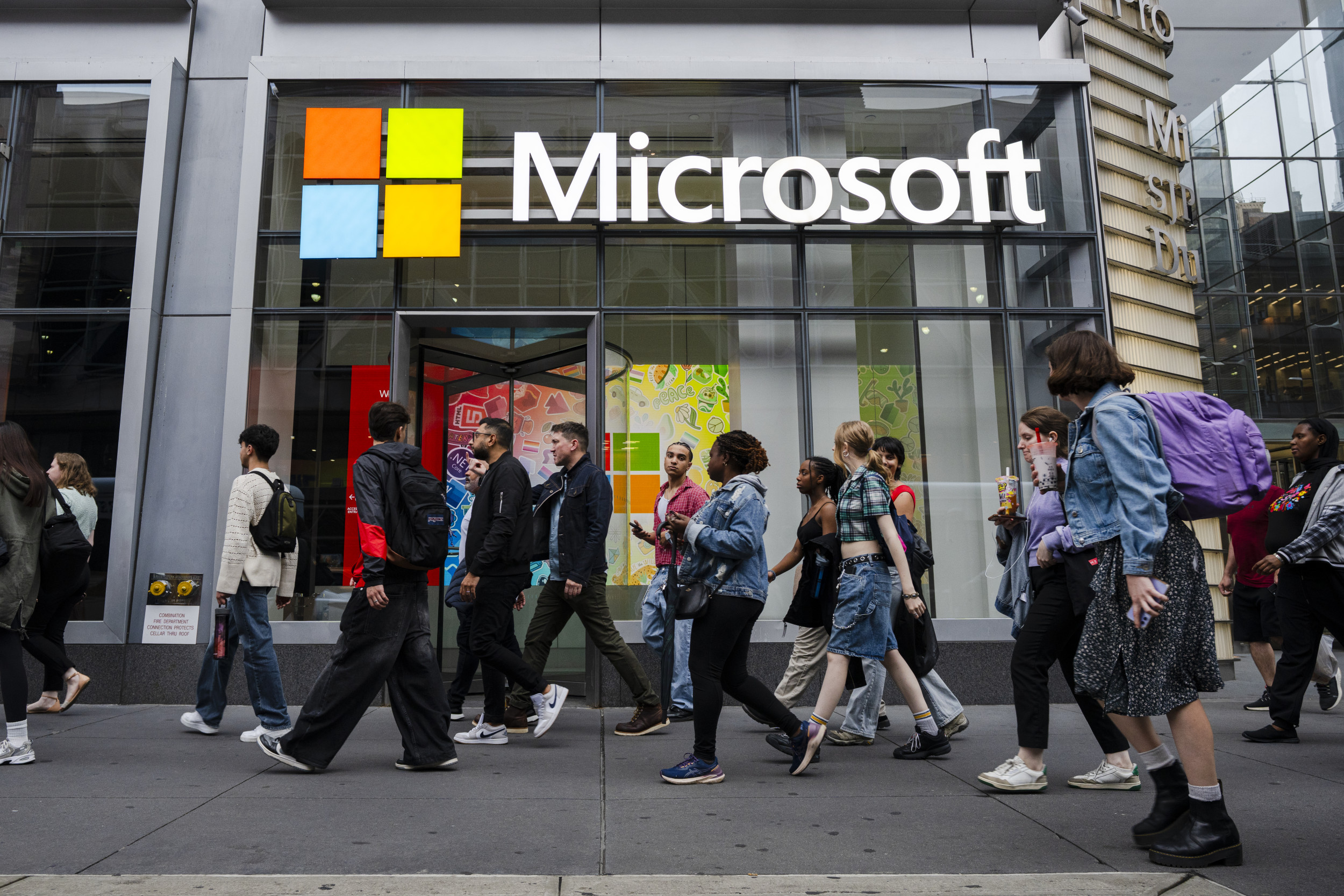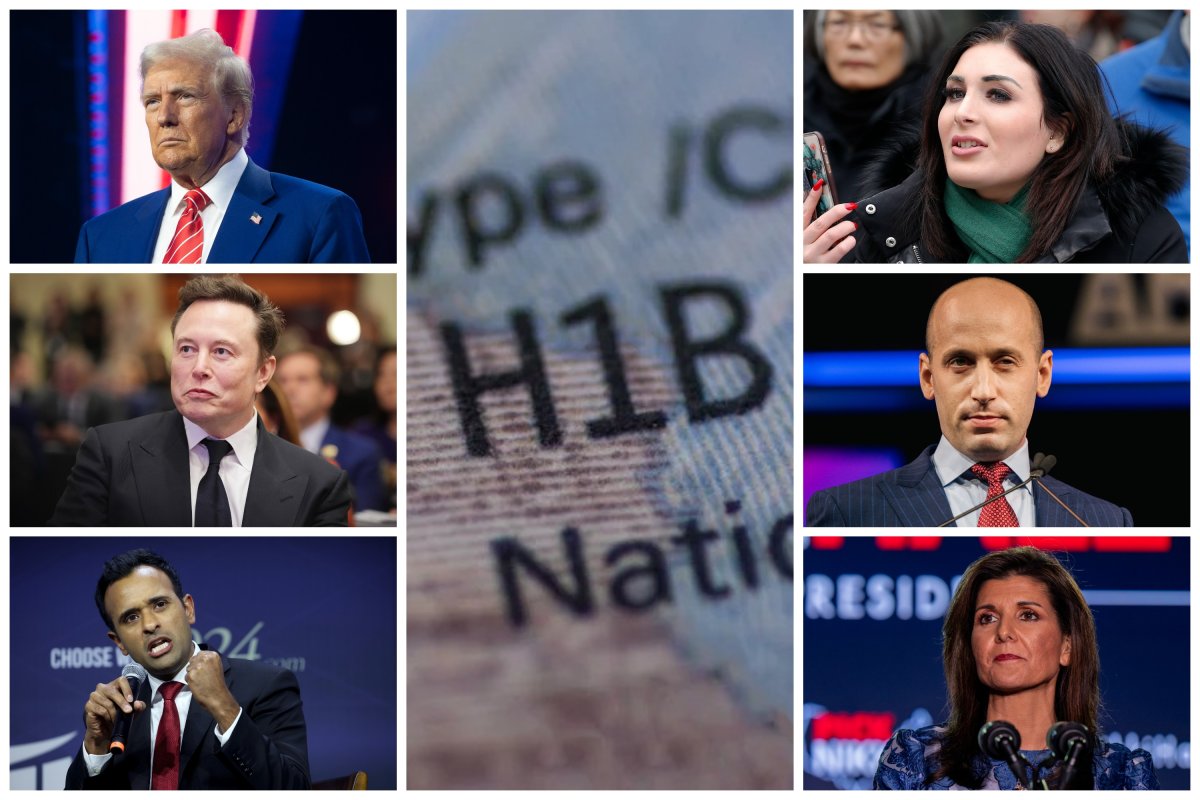
Microsoft is under growing pressure to account for its H-1B visa requests after announced another round of layoffs this week, affecting around 9,000 employees across its global headcount.
The latest round of layoffs, hitting roughly 4 percent of the tech giant’s workforce, comes after two other waves in May and June, affecting another 8,000 in total. The company has laid off nearly 16,000 people in total this year, out of a 228,000-strong global employee base.
In the weeks that followed those layoff announcements, claims began circulated on X that the company had also applied for upwards of 6,000 high-skilled work visas, or H-1Bs, since October, the start of the current fiscal year. While that number could not be independently confirmed, during the last fiscal year, Microsoft applied for 9,491 H-1B visas. All were approved.
“In some sense, there’s nothing strange here,” Steven Camarota, director of research at the Center for Immigration Studies, told Newsweek. “You have a situation where the advocacy or use of guest worker programs is entirely always disconnected from the actual behavior of businesses.
“The actual data we have never supports the idea that we are terribly short of workers in the way that the business community says.”
Craig T Fruchtman/Getty Images
While not the largest recipient of H-1B visas — Amazon takes that title with over 9,200 in 2024 — Microsoft still placed seventh out of the top ten U.S. corporations with around 4,700 approvals, according to U.S. Citizenship and Immigration Service (USCIS) data released earlier this year.
Newsweek repeatedly reached out to Microsoft for comment on this story, specifically asking about the number of H-1Bs the company is presently requesting and how many of them are for positions being eliminated through layoffs.
When announcing its layoffs this year, the Redmond, Wash.-based company insisted that it was flattening its management layers, as opposed to targeting software engineers and developers at lower levels. However, the Seattle Times reported that only around 17 percent of those laid off at the Redmond campus were designated as managers.
Microsoft’s cuts also come after one of its best quarters ever, with the company announcing $26 billion in profit from January through March. Its stock is up nearly 20 percent year-to-date, at a time when tech companies across the board are looking to replace certain jobs, particularly in coding and engineering, with AI.
With H-1B workers are typically seen as cheaper than Americans to employ, outrage has been spreading across social media from those who oppose the visa. There is no confirmed link between Microsoft’s layoffs and its H-1B applications.
“This is economic treason. Approving a single H1B right now is a grave betrayal of your fellow citizens,” the influential right-wing X user Pine Baron wrote in response to the latest round of Microsoft layoffs, while the account U.S. Tech Workers, linked to the Institute for Sound Public Policy, asked if the U.S. Department of Labor (DOL) would investigate.
Newsweek reached out to the DOL about Microsoft’s layoffs and whether it monitors companies hiring practices in relation to H-1B issuances.
Many tech companies benefit from the H-1B program, which involves them sponsoring individuals to come to the U.S. and work. Typically, the visa is tied to a particular role and company, meaning workers cannot easily change jobs and often have to leave the U.S. once their role is terminated. This makes them easier to employ at cheaper costs, and less likely to quit.

Getty Images
The program has become a flashpoint on the right, largely between the MAGA movement that believes H-1Bs take away jobs from American-born workers and the Big Tech executives who support Donald Trump but also do not want to see H-1Bs eliminated.
“The reality is that the business community is convinced they need the workers and there is tremendous skepticism in the part of the public, and the end result is political stalemate in terms of reforms,” Camarota said.
At the end of 2024, debate around the H-1B blew up on social media, as Elon Musk and Vivek Ramaswamy – set at the time to co-lead the DOGE initiative – came out in favor of the program and called for even more work visas, while the president’s base made it clear it was not in the spirit of MAGA.
President Trump, as a businessman, has long been in favor of H-1Bs and has not given much indication he will look to modify the program.
“The problem here is, for the most part, the system works well for business, and if it works pretty well for business, well the incentive to change it in ways that would protect American workers is hard,” Camarota said, referring to that debate.
“If they reformed H-1B, probably anything that would make it through Congress given the skepticism about it, would be more regulations and they don’t want it.”
